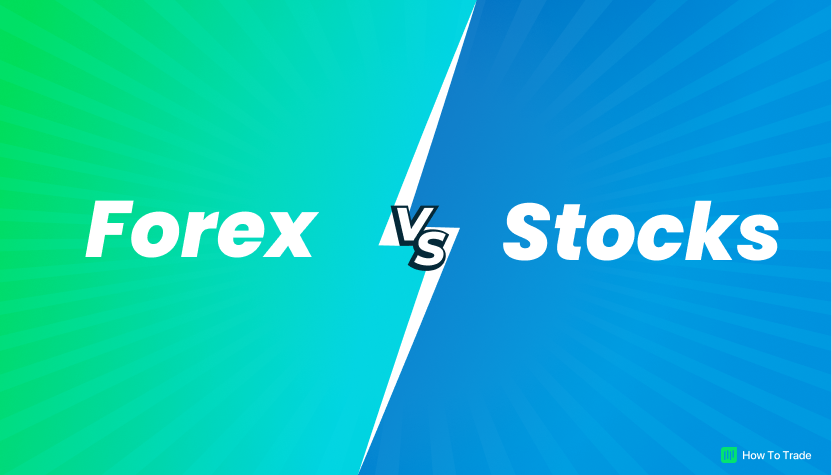There are a few key differences between forex and stocks when it comes to trading. These differences can make one or the other more suitable for specific traders. So, which is more suited for you? This article will look at the key differences between forex and stock trading to help you decide which is right for you.
The foreign exchange market is where traders can trade currencies. Currencies are essential because they allow countries to trade with each other and act as a way to store value. The forex market is known to be the largest financial market in the world. It’s open 24 hours a day, five days a week, and is highly liquid, meaning there are always buyers and sellers.
The stock market is where traders can trade stocks. Stocks represent ownership in a company, and when you buy shares of a company, you buy partial ownership of that company.
The differences between forex and stock trading
Here, we look at some of the key differences between forex and stock trading.
Volume
Another difference between stock and forex trading is volume. Forex trading has a much higher volume than stock trading, which is because forex is traded 24 hours a day, five days a week. At the same time, stocks are only traded during standard market hours.
In fact, the forex market is the largest financial market globally, with up to trillions of dollars in flux every day. The stock market follows close behind.
Leverage
Another critical difference between forex and stock trading is leverage. In forex trading, you can trade with a higher Leverage than in stock trading, and leverage is the ratio of your trade size to your account balance.
For example, if you have an account balance of £1,000 and use 100:1 leverage, you can trade up to £100,000 worth of currency. You only need to put down 1% of the total trade value as margin. However, it also means that the same amount can amplify your losses.
Margin
Margin is the amount of money you need to open a trade, and the margin is usually a tiny percentage of the total trade value in forex trading. For example, if you are trading with 100:1 leverage on a £100,000 trade, your margin will be £1,000.
The margin is required because, in forex trading, your losses or gains are based on the total value of your position. Whereas in stock trading, your losses or gains are based only on the price movement of the shares.
Position size
The position size is the number of units of currency that you buy or sell in a trade. You can trade in micro, mini, and standard lots in forex trading, and a micro lot is 1000 units of currency.
A mini lot is 10,000 units of currency, and a standard lot is 100,000 units of currency. In stock trading, you usually trade in shares. So, if you were to buy 1000 shares of ABC stock, that would be your position size.
Pip value
The pip value is the price movement of a currency pair. A pip is usually equal to 0.0001 of the currency pair. So, if the EUR/USD moves from 1.2500 to 1.2505, that would be a five pip move. The value of the pip varies depending on the currency pair and the position size.
You need to know the pip value in forex trading to calculate your profits and losses. You don’t need to know the pip value in stock trading because your profits and losses are based on the share price.
Conclusion
These are some of the main differences between forex and stock trading. As you can see, they are not at all the same and operate on different indicators. It’s up to you to decide which one is more suitable for your trading style. New traders should use a broker that offers both forex and stock trading to try out both types of trading before decidingif they wish to do so. But most of all, they should use a reputable and reliable broker.



